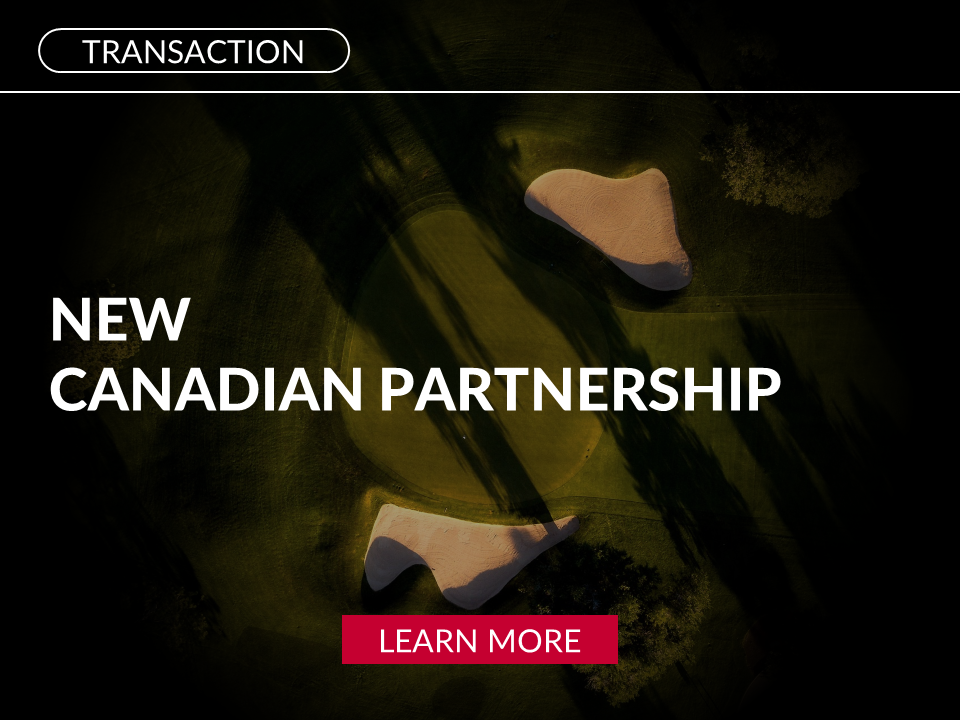When was the last time your club audited its human resources? Alignment between a club’s strategy and its employee offering is essential in order to enhance the overall club lifestyle, culture, and experience for members and staff.
To determine whether it’s time to reexamine culture, Partner Derek Johnston lays out 4 questions private club boards should be asking.
Among the most reverberant takeaways from the coronavirus pandemic is the importance of people to businesses. Global business leaders and executives at leading corporations have indicated that the shift toward talent as the most important source of corporate value has continued. The pandemic also seems to be leading an increasing number of talent-forward companies to take an “employees first” approach.
But this is nothing new for large-scale global businesses. Indeed, the third week of August marked the one-year anniversary of the influential Business Roundtable’s statement on corporate purpose – which puts employees, customers, their communities, and the environment on a par with shareholders.
“Human resources” is trending
It’s also nothing new for club businesses. Our continuous research on club industry trends has shown human resource management and labor challenges to be a persisting trend, one which club managers have reported to be rising in importance – before the coronavirus.
In 2019, human resources was ranked the 6th most-impactful private club trend (out of 27) in a global survey of club managers. And, in a separate Canadian club industry survey, it was identified as both a key risk and primary hurdle to modernizing club management while topping the list of areas which managers say are under-supported from an education standpoint.
The early-pandemic question as to whether COVID-19 impacts would accelerate the business community’s move to stakeholder capitalism, or slow it down as companies focus on short-term financial pressures, seems to have answered itself.
For clubs, the people-related challenges previously reported by managers have exacerbated, with topics like employee willingness to work, labor anxiety, staff recruitment and turnover emerging as key strategic questions which club leaders are currently wrestling.
Widespread COVID-19 impacts like club closures, layoffs, and furloughs certainly haven’t helped ease concerns. With significant changes afoot in staffing, retention, human resource availability, and operational adaptations, clubs are presented with a unique opportunity right now – the chance to reevaluate and perhaps reset their culture.
Got culture?
In clubs, culture IS governance. Sound governance is a strategic imperative primarily because it enables, supports, and nurtures effective strategy. And, as the Peter Drucker saying goes, “Culture eats strategy for breakfast.”
This is extremely important for club leaders.
It’s important because it means that no matter how strong a club’s strategic plan is, its efficacy will be held back by team members, staff, and employees if they don’t share the proper culture.
When the breaks are going against the business, as they are for some right now, the people implementing the club’s plan are the ones that make all the difference. While strategy defines direction and focus, culture is the habitat in which strategy lives or dies.
Now is the perfect time to reexamine your club’s culture to ensure staff square rightly with the club’s strategy. In other words, to ensure that your people are the best fit for accomplishing the club’s goals and objectives. Someone who was right for a specific role pre-pandemic may not be right for the same role now. Your business has changed, and some people may need to change too, either themselves or their roles.
How can club leaders reexamine culture?
The first place to start is by understanding what you’re currently doing for employees. Club leaders require a comprehensive understanding of the club’s current approach to human resource management so that they can determine the alignment of people and culture with the club’s goals.
When was the last time the club audited its human resources approach, policies, procedures, and performance? Ensuring alignment between the club’s strategy and its employee offering is essential in order to enhance the overall club lifestyle, culture, and experience for members and staff.
To help you get started, here are four HR questions private club boards should be asking:
1. How does our current organizational structure sit relative to best practice and what recent COVID-related changes should we make permanent or revisit?
Review your club’s current organizational structure, including both employees and contract workers, against best practice structures at comparable clubs locally, nationally, and globally. This review should focus special attention on the roles and responsibilities of human resources within the organizational structure with the goal of highlighting key gaps or divergences from best practice. Often times in clubs, an overly flat organizational structure tends to create ‘siloes’ that breed inefficiencies and bloat staffing levels.
2. Are we both efficient and competitive in the compensation and benefits afforded to employees?
Complete a comprehensive benchmarking exercise which compares compensation and benefit levels of all key staff and for the club as a whole to comparable clubs and other businesses with whom you compete for talent. The focus of this exercise should go beyond salary and hourly wages, factoring in relevant club financial and operating data, benefits packages, member and employee feedback scores, and other market-related information.
The goal is to identify current and accurate reference points for evaluating current compensation and benefits against best practice. There is a high degree of likelihood that there are opportunities in your current compensation and benefits structure to better align incentives and shift compensation to top talent, which tends to support increased productivity and reduced head count.
3. Are our personnel positioned to help us achieve the club’s goals and objectives? Are we helping them achieve theirs?
Assess your club’s performance tracking and review processes. The goal here is to analyze current performance evaluation processes and procedures to ensure alignment with the club’s overarching goals. This requires the board and executive committee to have a focused, clear, and comprehensive understanding of the club’s mission, vision, core values, and objectives.
For maximum benefit, to both member and employee satisfaction, it is incredibly important that performance is measurable and incentivized. The trick is determining the right way to track and measure performance and tie it to the right incentive.
4. Are our staff equipped with the tools they need to succeed? Are they empowered to do so?
Evaluate your club’s current recruiting, onboarding, training, and ongoing relational efforts. This will likely require management meetings and staff interviews to learn about the current approach and unearth any ideas or recommendations your team may have to suggest.
The success of every private club is dependent on the quality of their staff. Recruiting the best talent, integrating them into the envisioned culture, training them for success, ensuring their satisfaction, and ultimately retaining them is an important goal. The outcome from which tends to have a positive financial impact on the club and on the member experience.
After all, an investment in people is an investment in culture and clubs will benefit from this investment.



